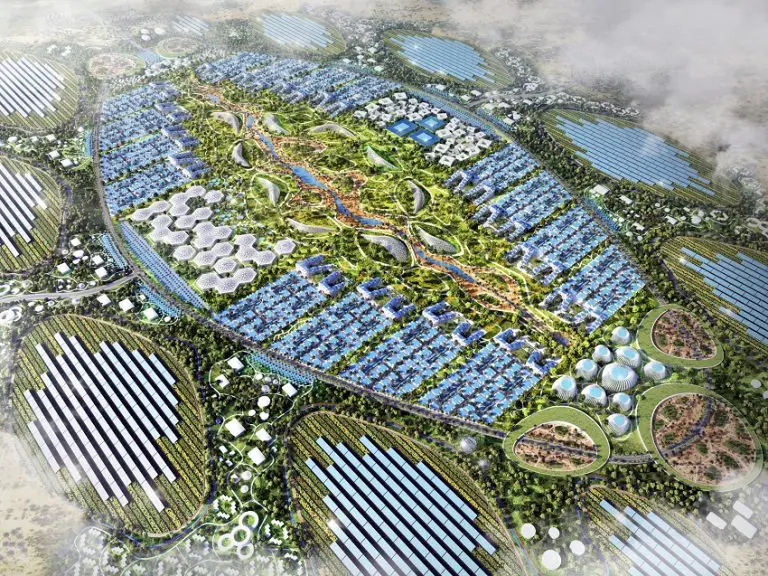The ALNAMA zero-carbon smart city project has officially been launched in Riyadh, Saudi Arabia. The project aims to promote sustainable living within the community. It features a diverse range of hubs including commercial and residential.
Read Also Partnership Deal Signed for Masar Mall Project in Makkah, Saudi Arabia
Moreover, ALNAMA zero-carbon smart city plans to provide residential units for a population of well about 44,000 people. The development project will also result in the creation of jobs in various sectors.
More about ALNAMA zero-carbon smart city
The 10 kilometers-squared community will feature various hubs. These include commercial, residential, tourism, and medical hubs. The project aims to develop and provide 11,000 residential units.
These units will be dedicated to a population of well about 44,000 people. Additionally, the 1,000-hectare development will create well about 10,000 jobs. These new job opportunities will span various sectors. More especially the green-tech industries sector. Since the project aims to create a green circular economy for the city.
The ALNAMA zero-carbon smart city is under the mastermind of URB. It also aims to provide the highest standards of environmental, economic, and social sustainability. The featured hubs aim to transform the city into a unique destination. Additionally, the project aims to capture the attention and interest of eco-tourists. The featured green tech hub will bring forth an innovative ecosystem for urban tech companies. More especially the companies that are related to water, mobility, food, building materials, waste, and energy.
The CEO of URB, Baharash Bagherian, stated that ALNAMA aims to create the next generation of self-sufficient cities. They aim to create cities that produce all their renewable energy needs. He further revealed that the project features wadis as well as carbon-rich habitats. He also revealed that the project features productive gardens alongside biosaline agriculture. These, he expressed, were key features of the development’s resilient and innovative landscape design.
